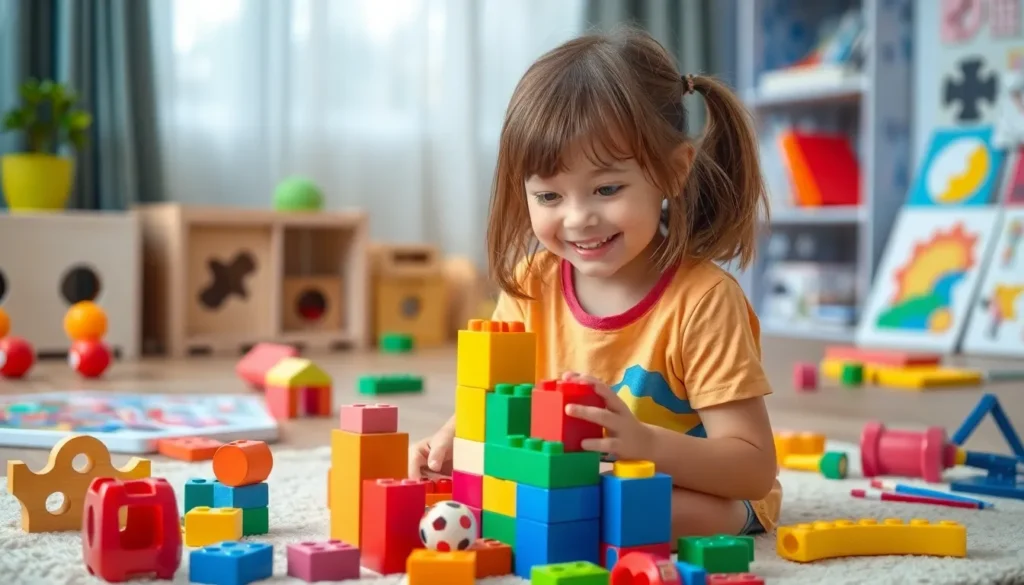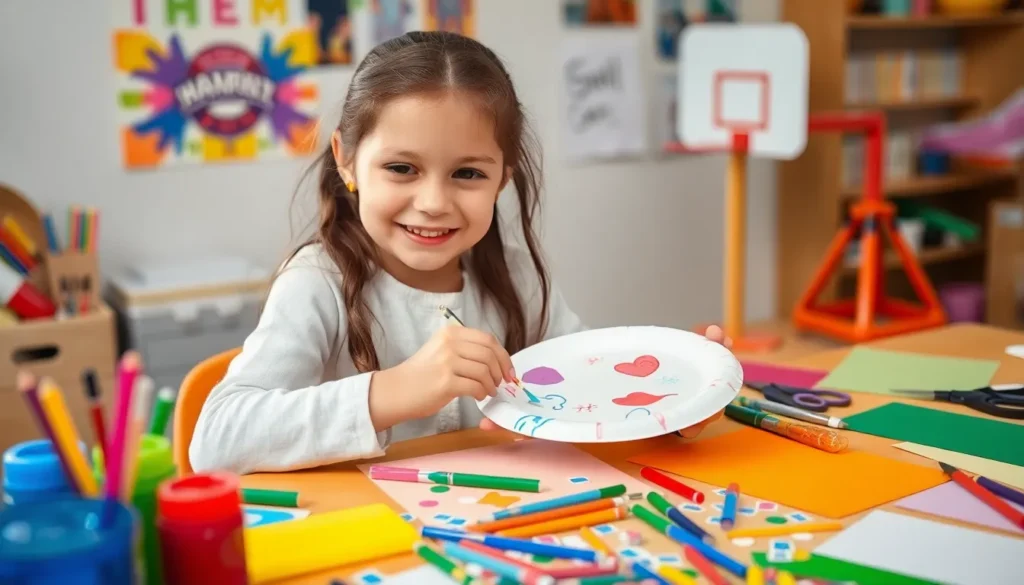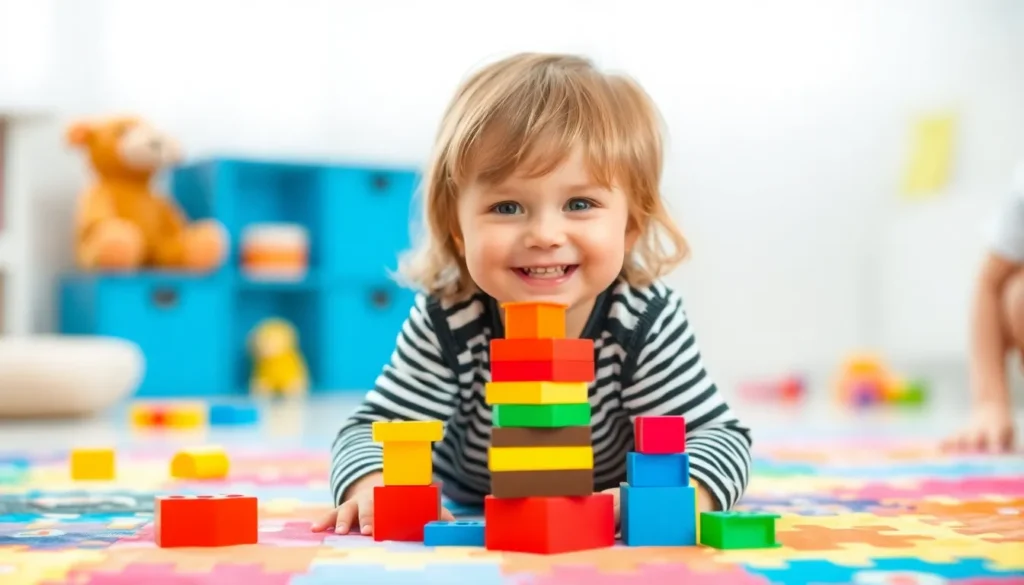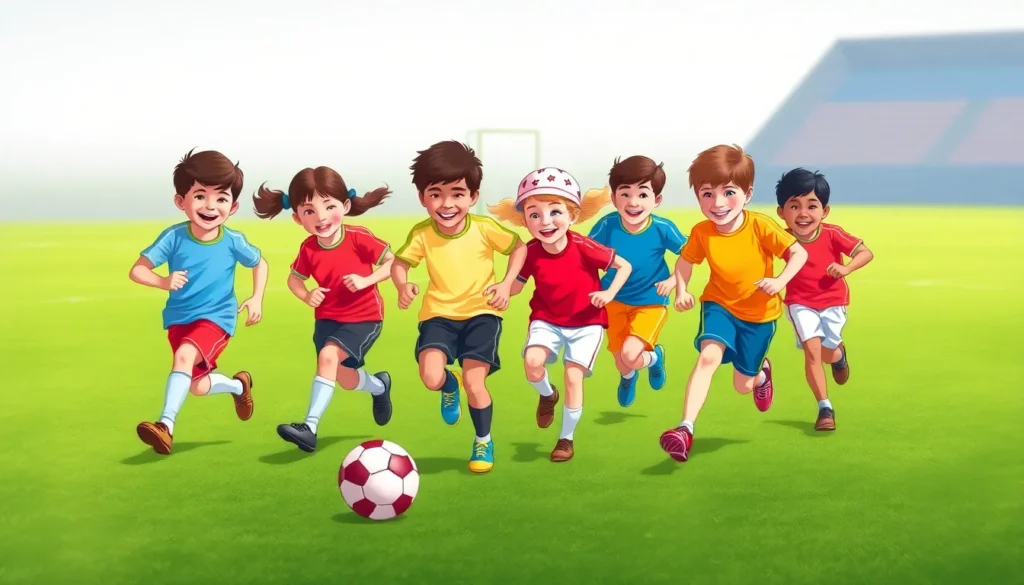In a world where team sports dominate the playground, individual sports for kids often get overlooked. But wait—what if they could unleash their inner champion without the pressure of a team? Individual sports offer kids a chance to shine solo, building confidence and skills while having a blast. From tennis to gymnastics, these activities encourage personal growth and self-discipline, all while keeping the competition friendly.
Table of Contents
ToggleBenefits of Individual Sports for Kids
Individual sports provide numerous advantages for children, fostering both physical and mental development. Engaging in activities like tennis and gymnastics contributes significantly to a child’s overall growth.
Physical Health Improvements
Participation in individual sports enhances cardiovascular health, increases strength, and improves flexibility. Kids engaging in such activities often experience better weight management and develop stronger bones and muscles. Regular exercise leads to improved endurance, allowing children to participate actively in other physical pursuits. Parents notice that their children exhibit higher energy levels and increased stamina due to consistent activity. Overall, individual sports promote a healthier lifestyle and encourage good habits from a young age.
Mental Health Benefits
Individual sports significantly boost children’s self-esteem and resilience. As kids set and achieve personal goals in sports, they build confidence that transfers to other areas of life. Moreover, participation helps reduce anxiety and stress, providing an outlet for emotional expression. Children develop better focus and discipline, cultivating essential skills for academic success. In individual sports, kids learn to persevere through challenges. This experience reinforces a growth mindset, encouraging them to embrace learning and self-improvement.
Popular Individual Sports for Kids
Children can explore a variety of individual sports that cater to their interests and skills. These activities not only enhance physical abilities but also foster mental resilience.
Swimming
Swimming offers a low-impact way for kids to improve cardiovascular health while developing strong muscles. It enhances coordination and teaches essential water safety skills. Children can participate in lessons or swim clubs, allowing them to progress at their own pace. Engaging in swimming also promotes discipline through regular practice and goal setting, making it an excellent choice for personal growth.
Martial Arts
Martial arts provide a unique blend of physical fitness and self-defense. Styles such as karate, taekwondo, and judo build strength, flexibility, and coordination. They also enhance focus and respect, instilling confidence in children. By learning and mastering different techniques, kids cultivate resilience and perseverance, which are beneficial beyond the dojo.
Tennis
Tennis is a fantastic sport for kids to improve hand-eye coordination and reaction time. This racquet sport encourages strategic thinking and quick decision-making during matches. Participation in tennis clubs or lessons allows for skill development in a supportive environment. Performing drills and playing matches helps children develop a healthy competitive spirit while achieving personal goals.
Gymnastics
Gymnastics offers children the opportunity to enhance their strength, flexibility, and balance. Various disciplines, such as floor exercise and vault, provide diverse challenges. Engaging in gymnastics builds confidence as kids master new skills and routines. Classes often emphasize personal achievements, helping children experience the joy of setting and reaching targets, which boosts overall well-being.
Choosing the Right Sport for Your Child
Selecting the right individual sport hinges on understanding a child’s unique interests and physical capabilities. By recognizing what excites them, parents can better navigate available options.
Assessing Interests and Abilities
Identifying a child’s interests involves observing playtime activities and existing hobbies. Engaging conversations about favorite sports or athletes can reveal preferences. Assessing physical abilities through activities provides insights into strengths and areas for growth. Children passionate about movement may thrive in gymnastics or martial arts, while those who enjoy water can excel in swimming. Matching sports to individual enthusiasm boosts motivation and enjoyment, fostering a positive experience that encourages long-term participation.
Age Considerations
A child’s age plays a critical role in sport selection. Younger children often benefit from programs focused on skill development, fun, and fundamental movement. As they grow, they may appreciate more structured competition and challenge. Sports like tennis and swimming offer adaptable training suitable for various age groups. Understanding developmental milestones ensures age-appropriate activities that align with a child’s growth. Selecting sports that cater to their evolving interests and capabilities creates a supportive environment, promoting self-confidence and enjoyment.
Encouraging Participation in Individual Sports
Encouraging participation in individual sports allows children to explore their interests while developing essential skills. Fostering a supportive environment can significantly enhance a child’s engagement in these activities.
Setting Goals
Setting goals plays a critical role in a child’s journey in individual sports. Children can establish personal milestones that guide their progress in skills or performance. Clear, achievable objectives cultivate motivation and a sense of purpose. Parents should encourage kids to reflect on their aspirations and celebrate each success, no matter how small. This approach promotes self-efficacy and reinforces the value of perseverance. Goal-setting workshops can also introduce children to this concept, providing them with tools to track progress and stay focused.
Building Confidence
Building confidence is essential for children’s growth in individual sports. Through mastery of new skills, children experience a sense of accomplishment that boosts their self-esteem. Regularly practicing a sport enhances their abilities and teaches them to handle challenges effectively. Supportive feedback from parents and coaches reinforces their efforts, making them feel valued and capable. Engaging in friendly competitions allows kids to apply their skills, further solidifying their confidence. As children become more skilled, they often become more resilient, empowering them in both sports and everyday life.
Individual sports offer children invaluable opportunities for personal growth and development. By engaging in activities like swimming, martial arts, tennis, and gymnastics, kids not only improve their physical health but also enhance their mental resilience. These sports foster self-discipline, confidence, and a sense of accomplishment, all while allowing children to pursue their unique interests.
Parents play a crucial role in supporting their child’s journey by understanding their preferences and capabilities. Encouraging participation in individual sports creates an environment that nurtures motivation and self-efficacy. As children set and achieve personal goals, they build a strong foundation for success that extends beyond sports into everyday life.









